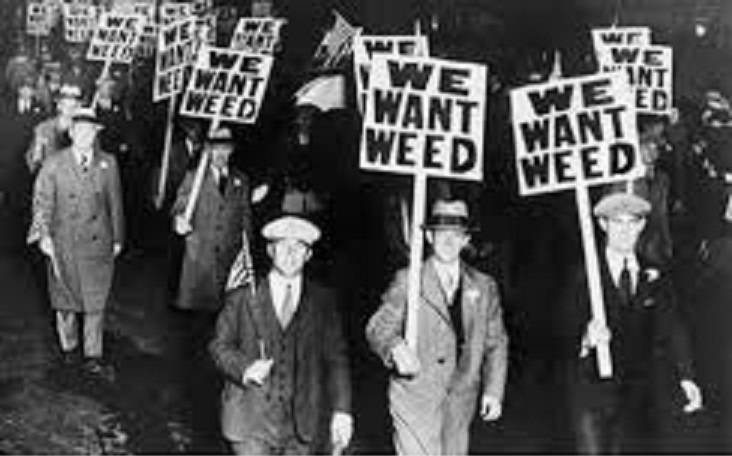One of the strongest arguments for cannabis prohibition was that it was what the majority wanted. For better or for worse, we live in a democratic system, which means that the law ought to reflect the collective wisdom of the majority, and opinion polling in Western countries used to favour cannabis prohibition. As this article will examine, that is no longer the case.
It’s true that opinion polls used to favour prohibition. In 1969 only 13% of Americans believed that cannabis should be legal. Only 44% of Americans believed that cannabis should be legal as recently as 2009. By 2018, however, opinion polls now favour legalisation. 66% of Americans now support legal recreational cannabis along the lines of the Colorado model, and the trend line points sharply upwards.
If one goes back 100 years, most people thought that cannabis should be legal anyway, as its medicinal applications were obvious: cannabis prohibition is the experimental condition, and it has failed. So this sharp decrease in prohibitionist sentiment over recent years is really a return to the baseline condition of liberal cannabis sentiment.
The public did consent to the experiment with prohibition, this is true, but this was the result of a naive people believing the lies of politicians beholden to industries that saw cannabis as a competitor. Foremost among these were the timber, alcohol and pharmaceutical industries. Being the paid whores that they are, Western politicians happily told lies about how cannabis had no medicinal value and was a dangerous drug, because their sponsors profitted from it.
As a result of these decades of lies, the public has not been accurately informed. As a result of that, they could not make correct decisions. Because politicians have been lying to people for decades about cannabis, there has been a common perception about cannabis that has taken a lot of effort to correct. When the public are accurately informed, things are different.
If people are correctly informed about cannabis, with reference to science, evidence and reality, they almost always come down on the side of legalisation. There is simply no scientific evidence supporting any of the common arguments about cannabis causing violent murders, rapes and general madness. The mid-1990s repeal movement in California associated with Proposition 215 was possibly the first time that a proper public attempt to tell the truth about cannabis had ever been made, and in that instance they came down on the side of legalisation.
As mentioned above, a clear majority of Americans are now in favour of legal cannabis, and something similar can be observed in New Zealand. Although opinion polling about the upcoming cannabis referendum is rudimentary on account of that the actual referendum question is yet to be formulated, what little there is suggests that the pro-cannabis side is already ahead. Probably it will pull further ahead as more positive news comes in from American states that have legalised.
Other opinion polls, asking more specific questions, have returned similar results in New Zealand. A Drug Foundations survey conducted in July found that two-thirds of the country wanted some kind of change to the cannabis laws, although they were not given a clear distinction between legalisation and decriminalisation. It also found that the prohibitionist side was no longer winning the recreational cannabis debate.
The next generation of young people is heavily pro cannabis all over the West, as seen in Understanding New Zealand. McGlashan calculated that the correlation between being under 20 and voting for the Aotearoa Legalise Cannabis Party was 0.41, whereas the correlation between being aged 65+ and voting for that party was -0.43. This means that the opponents to cannabis law reform are all dying off: after all, society advances one funeral at a time.
What this suggests is that the victory of cannabis law reform is inevitable. The fact is that the majority of anti-cannabis sentiment is held by brainwashed old people who are dying off. There is already a majority in favour of cannabis law reform everywhere, and this will only grow stronger as time progresses and old people who have been conditioned to hate cannabis users die.
Cannabis ought to be legal because a majority of people have now realised that the fears were grossly overblown and they want reform. Cannabis prohibition no longer has the support of the people, and support for it continues to fall. In a short number of years there will only be a remnant of cannabis prohibitionists left, and it might be better to put them out of their misery now.
*
This article is an excerpt from The Case For Cannabis Law Reform, compiled by Vince McLeod and due for release by VJM Publishing in the summer of 2018/19.

